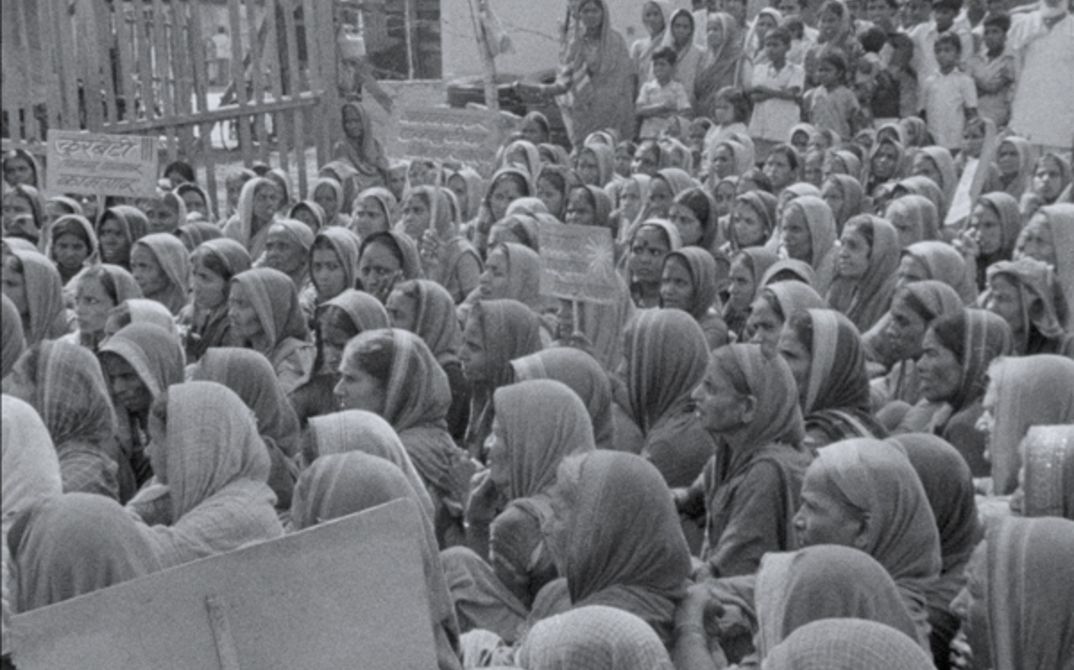Yugantar – India’s first feminist film collective – was founded by Abha Bhaiya, Navroze Contractor, Deepa Dhanraj, and Meera Rao in 1980. During a time of radical political transformation Yugantar created four pioneering films together with existing or ensuing women’s groups: with domestic workers in Pune (MOLKARIN, 1981), with female factory workers in Nipani (TAMBAKU CHAAKILA OOB ALI / TOBACCO EMBER, 1982), with Sri Shakhti Sanghatana, a feminist research and activist collective based in Hyderabad (IDHI KATHA MATRAMENA / IS THIS JUST A STORY?, 1983) and with members of the Chipko movement (SUDESHA, 1983).
The films’ significance lies in their original collaborative practice before ‘participatory video work’ or ‘community media’ became buzzwords and in being part of the Indian autonomous women’s movement and radical left movements of the ‘70s and ‘80s. Yugantar films carved new film and political spaces through friendships and alliances and their vision participated in shaping a period imbued with immense energies for resistant cultural practices to expand political discourse. The screening of the newly restored TAMBAKU CHAAKILA OOB ALI and IDHI KATHA MATRAMENA is followed by a discussion on the past and future of the films as well as the synergies of film and political movements they carry as a spectre. While TAMBAKU CHAAKILA OOB ALI invents its language around collective strike action, IDHI KATHA MATRAMENA proposes a fictional narrative that widened the debate on domestic violence. Both films are similarly beside and firmly in the midst of the now.
Abha Bhaiya is one of the founding members of Jagori, a feminist organization set up in 1984 in Delhi. She is an activist with a longstanding involvement in the women’s movement in India.
Deepa Dhanraj is a filmmaker and writer and is active in the Indian women’s movement and internationally since the mid ‘70s.
Nicole Wolf is senior lecturer in Visual Cultures at Goldsmiths, University of London.
All panels, talks, and presentations in English.
